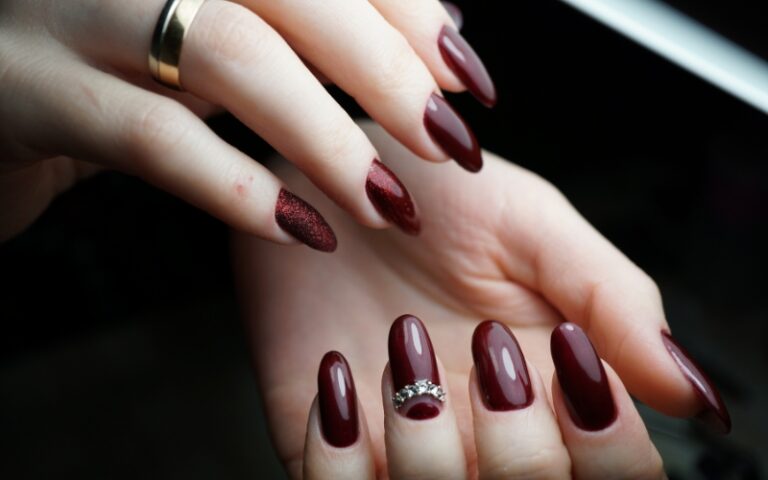11 Reasons Your Skin Gets Drier In The Winter

One of the most common complaints during winter is dry, itchy skin. It’s easy to imagine that we all have a pretty good understanding of the best ways to manage seasonal dryness, flakiness, scaliness, and overall annoyance after reading a couple of winter skincare stories.
We know that it is best to use moisturizer immediately after getting out of the shower, switch to a mild cleanser, place a humidifier next to your bed at night, use a lot of lip balm, and never take a hot or prolonged shower.
Have you ever wondered, despite taking these precautions, why on earth your skin is still so dry?
Here’s a list of wrongdoings that may impact your skin during the winter.
1. You’re still using the same old lotion.
Nope. Your typical, everyday moisturizer won’t work as well as it once did during the summer months. Be sure to use an oil-based cream (thicker in consistency) and not a lotion. Increase the dosage and frequency; apply the cream twice daily – morning and evening before bed.
Choose nourishing and thicker products than your typical light lotion, with urea and lactic acid for gentle skin exfoliation. You may also follow the tips on moisturizing dry, flaky skin on your face and use some tips for your whole body too.
2. You’re moisturizing when you shouldn’t be.
Applying moisturizers haphazardly won’t help the skin retain nutrients. The cold weather accelerates the skin to lose moisture more quickly than it can replace; as a result, it occasionally needs to be protected with extra-rich moisturizers. The outer layer of the skin immediately loses moisture after a shower in the cold.
Apply a rich, creamy moisturizer to your body to replace the lost moisture. Make sure to apply moisturizing cream to your skin before bedtime. The body relaxes and heals itself more effectively while we sleep; therefore, moisturizing your skin at this time will keep it nourished and hydrated.
So, stack your body moisturizer in your shower during the winter so you can apply it to damp skin immediately after stepping out of the steam.
3. Something is missing from your moisturizer.
What’s in the moisturizer itself is just as crucial as (if not more important) how thick it is and when you use it. The improper chemicals in your moisturizers may be the cause. Ceramide that fills in the gaps between skin cells and aid in skin healing should be sought.
Another wonderful alternative that helps to lock in moisture is products containing moisturizing glycerin and skin-soothing ceramide.
4. You’re cleansing with the wrong cleanser.
It’s important to add moisture to your skin after a shower, but don’t forget about the products you use while getting ready. Avoid using soaps and face washes, which can irritate the skin and make it difficult to retain moisture due to their alkaline pH. Instead, use moisturizing skin cleansers such as Cerave or Cetaphil to protect the skin barrier.
Choose moisture-protecting cleansers with glycerin, which quickly soothes irritation brought on by dryness, and apricot extract and sweet almond oil, which make the skin soft and supple. Almond and mango butter-containing body wash can provide skin with deep nourishment while you wash.
Other healthy cleansers you can use in the winter to keep the skin moist include turmeric, aloe vera, and mint cleanser.
5. You’re taking a too-hot shower.
Avoid a hot bath because hot showers can rapidly dry and irritate the skin. This act may also result in rashes, irritation, and dehydrated skin. Baths with hot water have the additional potential to strip the skin of its natural oils and nutrients, leaving it dry and flaky.
Have you ever tried cold showers? I know this can sound skeptical, but cold showers can change your overall wellness by kick-starting your metabolism.
At least 30 minutes before venturing outside into the cold, avoid bathing or washing your face.
6. You’re not addressing inflammation.
Leaving your skin dry and failing to care properly can result in serious conditions like eczema, dullness, redness, and fissures on the skin’s outer layer. Keep yourself hydrated. Take seasonal fruits and drink at least 2 to 3 liters of water daily to give your skin a healthy shine.
You could also need to use an over-the-counter cortisone cream to help reduce inflammation and moisturize your skin with moisturizers. The inflammation is suppressed, allowing the skin to resume its regular functions.
Additionally, because cortisone creams can thin the skin, you shouldn’t use them for longer than two weeks. It’s time to visit your dermatologist if the skin is still dry or sensitive after that time.
7. You’re avoiding sleep masks.
You can avoid winter dryness by using sleep masks and thick night cream, which is necessary during the coldest months. Overnight masks make your skin’s surface porous so that anything applied underneath it can permeate more easily. It will assist everything in absorbing more thoroughly if you use other hydrators such as serums and oils (try tamanu oil and see the amazing benefits) before covering everything with a thick layer of a sleep mask.
While sleeping, our skin regenerates and allows faster and easier skin restoration. Applying night creams or overnight packs are also the finest ways to postpone the appearance of aging because they moisturize, nourish, and detoxify the skin.
8. You’re not using a Saran Wrap.
An easy DIY fix for dry, flaky legs; put on a heavy moisturizer, pat your skin dry, and then cover your legs in plastic wrap for a few hours after taking a bath or shower in lukewarm water. It should be snug enough to occlude but not so tight that it is restricting.
Afterward, cover with long cotton tube socks to prevent evaporation and allow the moisturizing elements to fully penetrate the skin.
9. You’re not hydrating from the inside.
Maintaining a healthy state of hydration throughout the day is a crucial additional step to maintaining healthy, beautiful skin. Your skin’s appearance and susceptibility to drying out can be affected by not getting enough fluids in your system.
You might also require paying attention to consuming foods high in omega-3 fatty acids and antioxidants and remaining well-hydrated. These two vitamins can help your body produce healthy cells, including skin cells, and shield your cells from environmental deterioration.
10. Wearing non-skin-friendly materials.
Avoid wearing abrasive materials whenever you have skin issues of any kind. Dry skin is also not an exception. Try dressing in comfortable, loose-fitting natural fabrics to lessen the chance of additional physical irritability.
Don’t wash your items in conventional detergents, either. For detergents that won’t include harsh chemicals or strong fragrances, look for those made for sensitive skin.
11. Not using gloves.
A pair of gloves is the best physical defense against environmental elements that can dry out the skin on your hands. Wear thick gloves when going outside in the chilly weather, and use a pair of silicone gloves when washing the dishes to protect your hands.
Keeping your hands smooth and well-hydrated can be achieved by limiting the amount of hot and dry air that contact your skin.
Since frequent hand washing and sanitizing have become increasingly widespread, many people now also have dry skin on their hands. The skin won’t dry out as much if you wear gloves in the cold and wash dishes.
Maintaining beautiful, healthy, and glowing skin is easier in the winter months with the help of the right products and the right skin caring methods.
FAQs
Q: Is steaming a good method to soothe dry skin in winter?
A: Yes, face steaming is helpful in treating skin dryness. After steaming, apply a moisturizer or serum to plump your skin and help it retain moisture.
Q: Is trying double cleansing advisable in winter?
A: Yes, in fact, winter is the ideal time to try the double-cleansing method. When you do it at night, it keeps your skin hyper-clean without making it dry.
References
- What to know about dry skin in winter: https://www.medicalnewstoday.com/articles/winter-dry-skin
- Tips to Prevent Dry Winter Skin: https://www.healthline.com/health/winter-dry-skin#symptoms
- Reasons Your Skin Gets So Dry in the Winter: https://www.allure.com/story/winter-dry-skin
- Ways to Protect Your Skin During Cold Weather: https://intermountainhealthcare.org/blogs/topics/live-well/2017/02/6-ways-to-protect-your-skin-during-cold-weather/
- Reasons Your Skin Gets So Dry in the Winter: https://aromamagic.com/blogs/blogs/7-reasons-your-skin-gets-so-dry-in-the-winter





